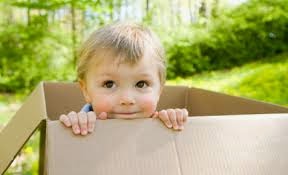- Education: noun, defined as "the process of receiving or giving systematic instruction, especially at a school or university" or "an enlightening experience".
- Learning: verb, defined as "the acquisition of knowledge or skills through experience, study, or by being taught".
- with a teacher instructing a student in a school setting
- Refer to above.
I'm not utilizing this post to discuss issues with public education systems, I have another blog post for that (linked below). The point of this post is to discuss why, if a child still retains their natural curiosity about the world, they never cease the act of learning. Everyday acts such as lifting a rock to examine the bugs underneath, making a cake, fixing the car, pumping up a bike tire, drawing a picture, giving the dog a bath, etc. are all learning activities. Instead of learning fractions from a textbook, a child learns about them from measuring flour for a cake. Formal learning tools (textbooks, teachers, classrooms, etc.) are not essential for the act of learning to occur. In fact, these formal learning tools stifle the individuality of the student. Informal learning tools are infinitely more flexible in their ability to adapt to the student. If you child learn visually, you can adjust how your child learns by using visual learning tools. In a public school setting, the student would be forced to conform to using the same formal learning tools as everyone else.
Unschooling uses the entire world as a learning tool. It's led by the child's passions (what's under that rock? What kind of bug is that? What kind of plant is that? What kind of soil does it need to live in? What kind of rock is that? Bingo! Geology, botany, etc.) and allows the child to use whatever informal learning tools (or formal, if that's the child's cup of tea) in order to learn about the world. There is no issue of transferring "formal learning" to real world application because the child learned about it in the real world. Without the constant barrage of formal learning tools that are forced upon the child (article link below), the child is constantly learning throughout their lives. Never underestimate the magic of the cardboard box: who knows what lessons your child might learn from something that seems so simple (and, informal).
The Problems With Public School From an Unschooled Perspective: http://thelifeofanunschooler.blogspot.com/2014/05/the-problems-of-public-school-from.html
Thanks for reading! Comment below, share with your friends, like us on Facebook for updates about every new blog post (link in 'About Me' section)! :)
